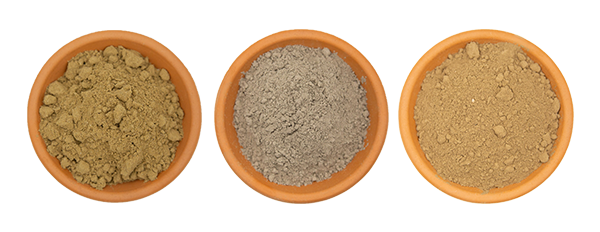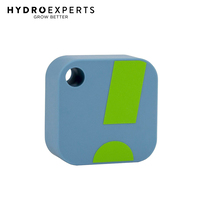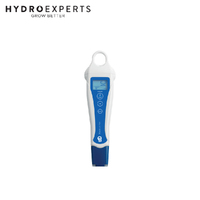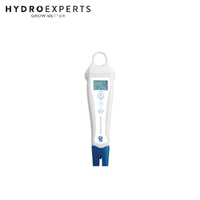SensorPush HT.w - Water-Resistant | Humidity / Temperature / Dewpoint / VPD Bluetooth Sensor
** G1 Wireless Gateway Recommended **
OUT OF STOCK
FREE SHIPPING OVER $499*
Products You May Need
Pick up at store Free
Delivery Options:
If cart total is less than $499*
Freight applies
If cart total is $499* & above
Free
*excluding bulky items
International shipping
Click hereSECURE PAYMENTS WITH

BUY NOW, PAY LATER
Pay in 4, interest-free. Afterpay it.

ZIP NOW, PAY LATER
Repay on a convenient weekly, fortnightly or monthly schedule.

ENJOY NOW, PAY LATER





Warning: Powered by button/coin battery. Please keep it away from children.
The HT.w Water-Resistant Temperature / Humidity Smart Sensor pairs effortlessly with our mobile apps and the optional SensorPush G1 WiFi Gateway to provide a premium solution for monitoring humidity and temperature, dewpoint, and VPD conditions over time.
It features a Swiss-made digital humidity/temperature sensor with a typical accuracy of ±2%RH/±0.2°C and adds a sensor membrane and o-ring seals for a durable splash and rain proof design. Battery changes are now easier and even more infrequent than ever with the easy change battery cap and a typical battery life of over 2 years in normal conditions. And perhaps best of all, the HT.w is designed, supported, and now made in the USA!
Its long range (100m / 325' line of sight) keeps you up to date, even at a distance. The Swiss-made sensing component provides highly accurate, repeatable measurements that you can trust. Data is collected at one-minute intervals and is stored on the sensor for over a month. It is automatically pushed to mobile applications when they are in range. There it is stored for graphing and analysis. The apps allow alert ranges to be set, so you can know when there's a problem without constant checking.
Add the SensorPush G1 WiFi Gateway to monitor all your SensorPush sensors remotely via the internet! The HT.w Temperature / Humidity Smart Sensor is perfect for monitoring weather conditions, your home, greenhouses, musical instruments, wine, cigars, art and keepsake collections and much more. Start protecting your family and valuables today!
Add the SensorPush G1 WiFi Gateway to monitor all of your SensorPush sensors remotely via the internet!
Features
- Temperature accuracy of ±0.4°C
- Humidity accuracy of ±4.5%
- Range of 325' line of sight
- One-minute intervals of data collection
- Up to two weeks of storage
Specifications
- Sample Rate: Sensor takes temperature and humidity readings once per minute.
- Dimensions: 40mm x 40mm x 16.5mm / 1.57" x 1.57" x 0.65"
- Weight: 23g / 0.8oz
- Battery : CR2477
- Battery Life: Typ. over 2 year (more in normal conditions, less in extreme cold)
- Compatibility:
- iOS 11+, Android 5.1+. Requires Bluetooth 4.0+ (also known as Bluetooth LE).
- iPhones since the iPhone 5s, iPads since the 5th generation and the 6th generation iPad Touch support this technology.
- There are too many Android devices to list them all here, but you can look in the specifications for your device for Bluetooth 4.0 or Bluetooth LE. Please contact SensorPush support if you are unsure about your specific device.
- Temperature Range: -40°C to 60°C (-40°F to 140°F)
- Humidity Range:
- 0 - 100%
- (prolonged exposure to > 80% RH may create an offset of up to +3% in the readings. This effect gradually reverses after return to < 80% RH conditions)
- Temperature Accuracy (20°C - 60°C / 68°F - 140°F): ±0.2°C / ±0.36°F typical, ±0.4°C / ±0.72°F maximum
- Temperature Accuracy (Full Range): ±0.6°C / ±1.08°F typical, 1.0°C / ±1.8°F maximum
- Humidity Accuracy (@ 25°C / 77°F, from 20% - 80% RH): ±2% typical, ±4.5% maximum
- Humidity Accuracy (@ 25°C / 77°F, from 0% - 100% RH): ±4.5% typical ±7.5% maximum
- Accuracy Notes:
- 95% of sensors fall within the "typical" range. Sensors outside the "maximum" range are not qualified for sale.
- Please note that above values are maximal tolerances (not including hysteresis) against a high precision reference such as a dew point mirror. Common deviations are within ±2%RH where specified tolerance is ±3%RH and about half the specified tolerance at other values.
In The Box
- [1] x SensorPush HT.w - Water-Resistant | Humidity / Temperature / Dewpoint / VPD Bluetooth Sensor
Documents
Q: How often do SensorPush sensors record data?
A: SensorPush sensors record data every minute. Currently, the sample rate cannot be adjusted. However, the CSV export functionality in our applications allows data to be exported at reduced intervals (e.g., every 15 minutes or hourly) to help keep data files manageable if the extra detail is not required. Learn more about exporting data to CSV files.
The current conditions are broadcasted for nearby mobile devices and SensorPush G1 WiFi Gateways to see immediately. Conditions are also logged on the device, allowing you to download a full history later. The amount of storage depends on the sensor model, with current models ranging from 20 to 45 days.
Q: How many days of readings can the sensor store, and what happens after that?
A: Both the sensor and the app store data. The sensor automatically maintains a backup of the most recent 20 days of readings. If you are away from the sensor, it will continue to record the conditions. When the sensor reaches 20 days, it starts to overwrite the oldest data points.
Once the data is picked up by the app, it is stored indefinitely on your mobile device. Similarly, when a SensorPush G1 Gateway is used in conjunction with the sensor, the data is stored indefinitely in the SensorPush cloud.
Q: Can I use SensorPush in a refrigerator, freezer, or walk-in cooler?
A: Absolutely! Many individuals and businesses use SensorPush to monitor their refrigerators, freezers, or even commercial walk-in coolers. However, there are some important considerations:
- Signal Strength/Range: Signal strength will be reduced because the signal has to travel through the walls of the equipment. In a normal refrigerator or freezer, you'll likely get a good signal in the same room or in adjacent rooms, but the range won't be as long as it would be if the sensor were outside. When placing a G1 WiFi Gateway, keep it relatively close to the refrigeration equipment. If you need it to be farther away, a little trial and error may be required to ensure a reliable connection.
- Water Absorption: Water effectively absorbs Bluetooth signals, and since most food products contain a high percentage of water, this can affect the usable range. The range can vary significantly based on how the sensor is placed within the equipment.
- Battery Efficiency: Batteries are less efficient at cold temperatures. In a refrigerator, this effect is minor, but in very cold freezers, you might need to change the battery more often—possibly every 6-12 months instead of the usual 2+ year interval.
For best results in sensitive applications, combining the sensors with a G1 WiFi Gateway is recommended. Since the range is reduced inside refrigeration equipment, the best way to ensure you are always up to date and alerted when issues arise is by using the SensorPush Cloud and the G1 WiFi Gateway.
Q: Can I use SensorPush sensors outdoors?
A: Yes, SensorPush sensors can perform well outdoors, provided they are protected from direct sunlight and precipitation.
While the sensors are not designed to be submersible and thus not classified as waterproof, the HT.w and HTP.xw models are water-resistant. They feature o-ring seals and protective sensor membranes, making them more robust and suitable for outdoor use.
Many users have had good results with the HT1 sensor when it is placed under the eave of a roof or in similarly protected outdoor conditions. Since the HT1 has an open sensor hole, it is advisable to mount the sensor with this hole facing downward to reduce the likelihood of water or debris entering the device.
Regardless of the model, you should protect your sensor from direct sunlight. Solar radiation can heat the sensor's casing, skewing the temperature and humidity readings. For optimal accuracy, choose a mounting location that shields the sensor from direct sunlight and precipitation while allowing good airflow. Mounting the sensor under an eave generally works well. Additionally, there are specially designed solar radiation shields available for such applications.










 Calculate shipping
Calculate shipping















